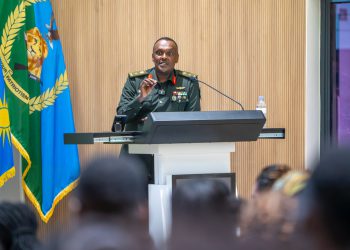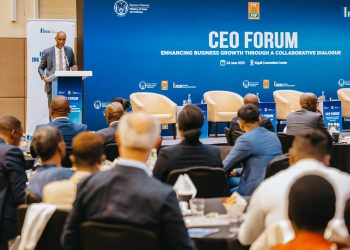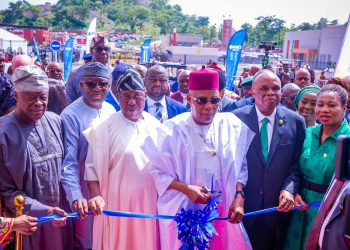Russia’s Minister of Communications and Mass Media, Nicolai Nikiforov is attending Transform Africa Summit. On the onset, he was invited to a panel discussion to give his views on Africa’s initiative of transforming the continent by embracing and investing Information Communication Technologies. Africa is seeking expertise and collaboration with different players. Russia is one of the partners Africa is considering in this transformational journey, spearheaded by President Kagame and other African States.
Below is what Nikiforov said Russia can offer.
 I would like to express my thanks for inviting me to participate in Transform Africa summit and to all of the distinguished guests, Excellencies participating here including his Excellence President Kagame. You know on this event we have almost half of the top ministerial delegation from our Ministry of ICT of Russia. We have two deputies here and several government employees. And we are here, because we really believe in fusion perspectives of what is being discussed here today. Russia is also a very big country. The size of Africa is about 30 million square kilometers; the size of Russia is about 17 million square kilometers. We are investing so much time and efforts in government and private investments in order to bring broadband conditions about 70%. And we can also reach it about top positions in the affordability of this broadband connectivity, which is also very critical for the African countries. We have been ranked on the second position for the lowest prices on cell phones and voicing data technological form and 10th position on fixed broadband. These are lowest prices in the world. I think we really can offer a lot of practical solutions and case studies to be implemented here. But they cover even a wider range than just probable particular blueprints or a smart city approach. Actually, I would want at least to name the topics where Russia and African countries could really cooperate. The first one is very well known. It is education. Today, we have thousands of students from Africa studying in Russian universities. At least 6000 of them and the number is increasing. And it’s about us to influence the number of students that will be studying ICT practices. But focus them on Transform Africa priorities. Let’s focus them on smart cities. It is possible we can easily do that. The second case study is for the cyber security. The more the more digital we become, the more dependent we will become on these different digital technologies. And you can never rely just on one particular vendor, one particular type of equipment or one particular software, because you will not just be very much dependent on these solution providers. When you have, for example, one search engine that occupies more than 50% of your market, or one mobile operating system, or one type of hardware that covers more than 50% of your network, you are in trouble, because you are getting dependent. You really have to keep this balance. And I think Russia is a wonderful partner here to cooperate in this area. It is also software. All these smart cities programs are about software. We have some huge expertise in the low level software that are responsible for different IT programs and other infrastructural components of smart cities. Also we don’t have to forget just the level of Internet governance, because we so much rely on Internet infrastructure. We have to keep our mind on the critical Internet infrastructure. We fully believe that nations do have their own legislation, national specific legislations. We are different countries, we have different history, we have different ethnical groups and we have different legislation. And Internet has no boundaries. But still the Internet services and the Internet legal transactions happen in this or that particular jurisdiction. That is why we have to keep in mind how the national legislation is being supported on the particular Internet segment of this or that country. We also can bring a lot of expertise in what is called E-government public services. In Russia, over 52% of public services are being delivered online. People no longer go to any government offices. They really get these services online. An interesting case about smart cities is a special federal government information system that delivers information to about 50 million different households in Russia. It is a federal obligation that every Russia citizen has the right to log in to a certain information system and get all the data about each particular household on the service delivered, on the payments that are being made. And this information has necessarily boosted us. There is the process of migration to digital television. The process is different in different African countries, but still we see a lot of potential for this migration. Probably, we have done the largest product in the world in just four weeks about 5000 digital TV base stations in Russia and we are ready to bring this expertise here to your continent. There is also distance health care and distance learning. A lot could be done in promoting E-commerce through national systems and I believe governments should also play a stronger role here. Running national operators is our own way to control and promote E-commerce, which is also a wonderful topic for smart cities and Transform Africa project.
I would like to express my thanks for inviting me to participate in Transform Africa summit and to all of the distinguished guests, Excellencies participating here including his Excellence President Kagame. You know on this event we have almost half of the top ministerial delegation from our Ministry of ICT of Russia. We have two deputies here and several government employees. And we are here, because we really believe in fusion perspectives of what is being discussed here today. Russia is also a very big country. The size of Africa is about 30 million square kilometers; the size of Russia is about 17 million square kilometers. We are investing so much time and efforts in government and private investments in order to bring broadband conditions about 70%. And we can also reach it about top positions in the affordability of this broadband connectivity, which is also very critical for the African countries. We have been ranked on the second position for the lowest prices on cell phones and voicing data technological form and 10th position on fixed broadband. These are lowest prices in the world. I think we really can offer a lot of practical solutions and case studies to be implemented here. But they cover even a wider range than just probable particular blueprints or a smart city approach. Actually, I would want at least to name the topics where Russia and African countries could really cooperate. The first one is very well known. It is education. Today, we have thousands of students from Africa studying in Russian universities. At least 6000 of them and the number is increasing. And it’s about us to influence the number of students that will be studying ICT practices. But focus them on Transform Africa priorities. Let’s focus them on smart cities. It is possible we can easily do that. The second case study is for the cyber security. The more the more digital we become, the more dependent we will become on these different digital technologies. And you can never rely just on one particular vendor, one particular type of equipment or one particular software, because you will not just be very much dependent on these solution providers. When you have, for example, one search engine that occupies more than 50% of your market, or one mobile operating system, or one type of hardware that covers more than 50% of your network, you are in trouble, because you are getting dependent. You really have to keep this balance. And I think Russia is a wonderful partner here to cooperate in this area. It is also software. All these smart cities programs are about software. We have some huge expertise in the low level software that are responsible for different IT programs and other infrastructural components of smart cities. Also we don’t have to forget just the level of Internet governance, because we so much rely on Internet infrastructure. We have to keep our mind on the critical Internet infrastructure. We fully believe that nations do have their own legislation, national specific legislations. We are different countries, we have different history, we have different ethnical groups and we have different legislation. And Internet has no boundaries. But still the Internet services and the Internet legal transactions happen in this or that particular jurisdiction. That is why we have to keep in mind how the national legislation is being supported on the particular Internet segment of this or that country. We also can bring a lot of expertise in what is called E-government public services. In Russia, over 52% of public services are being delivered online. People no longer go to any government offices. They really get these services online. An interesting case about smart cities is a special federal government information system that delivers information to about 50 million different households in Russia. It is a federal obligation that every Russia citizen has the right to log in to a certain information system and get all the data about each particular household on the service delivered, on the payments that are being made. And this information has necessarily boosted us. There is the process of migration to digital television. The process is different in different African countries, but still we see a lot of potential for this migration. Probably, we have done the largest product in the world in just four weeks about 5000 digital TV base stations in Russia and we are ready to bring this expertise here to your continent. There is also distance health care and distance learning. A lot could be done in promoting E-commerce through national systems and I believe governments should also play a stronger role here. Running national operators is our own way to control and promote E-commerce, which is also a wonderful topic for smart cities and Transform Africa project.




















Greetings! I know this is kinda off topic but I was wondering which blog platform are you using for this
website? I’m getting fed up of WordPress because I’ve had problems with
hackers and I’m looking at options for another platform. I would be great if you could point me in the direction of a good platform.